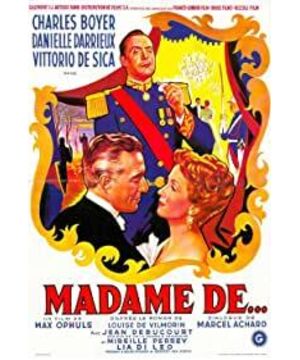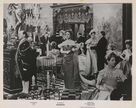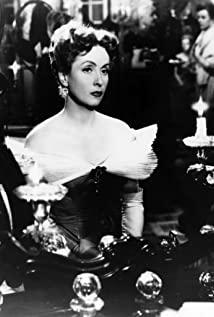general of the cross , diplomat, Napoleon’s
marriage, love, Waterloo
earrings, countess, Louise
. The first thing that comes to mind when watching this movie is a middle school text Maupassant’s "Necklace." Now I still remember: Mathilde Luizaire. What is connected with the movie is the vanity of a woman. Because of her vanity, Matilde is in debt and has to pay for the hard work of the next half of her life, but she has also grown up as a result. In the movie, Louise ruined her life and lost her life because of her vanity. Of course, she got the love she thought (let's call it love). But in this movie I don't want to criticize the vanity of women, I just sympathize with them.
There are many similar works reflecting the French upper class, such as Maupassant’s "Beautiful Friends", Alexandre Dumas’s "La Traviata", Stendhal’s "Red and Black". The relationship between men and women is also very similar. In Europe, China, and even the world, under the feudal system, that is, the so-called patriarchal society, the phenomenon of women being objectified is widespread, and the situation is very serious.
From the film below, emerald, fur, cross, earrings, this is Louise's jewelry, emerald, fur, representing her vanity, and at the end of the film Louise is willing to give up these in exchange for diplomacy. Officer's earrings for her love. The diamond cross is not just jewelry, but also represents her kindness and simplicity. The religious color of the cross is very obvious. At the beginning of the film, Louise prays to the Virgin Mary that the earrings can be easily shot, but at the end of the film, Louise will give up and switch back. Earrings dedicated to the Virgin.
Earrings have different meanings at different times, and they have different meanings in the eyes of different people.
In the beginning, it was a wedding gift from the general to Louise, which was a symbol of her status, but in her eyes, she only regarded the earrings as a relationship between her and the general. When she needed to repay the debt, the choice she made was earrings, because in her opinion there was no love between them, so she naturally gave up earrings.
For the general, earrings represent his face and self-esteem. When Louise held the earrings, he treated her equally, but in essence, Louise was a canary he raised in captivity. He was beautiful, elegant, capricious, and indulgent, all of which he tolerated and regarded This is fun. When Louise lost the earrings, he gave up watching the show, offended friends, and even called the police to find the earrings. When he found out that Louise deceived him, his attitude towards Louise was obviously materialized. Although he was calm, he still forced Louise to say "I'm sorry" to him, but he changed hands but will get the earrings again. These are obviously punishments for Louise, given to lovers who act on the scene.
When Louise got her earrings again, and the earrings were given by a diplomat, a man who made her faint and make her sick. When the general learned about it, his attitude towards Louise was completely materialized, that is, from living things to inanimate things. He completely ignored Louise's feelings and took the earrings, legally retrieved the earrings from the diplomat, and forced Louise to give it to his niece.
For the diplomat, earrings are merely props for him to please women. Many people also say that the diplomat really loves Louise, but you have to know that for him, even if there is no countess, there will be a viscountess and marquise. If he really loves her, then what he should do is give up the duel and take her away. It's just that he can't let go of his reputation.
Anyone who knows history knows that the high society in Europe was very licentious and corrupt at the time. Men looked for mistresses, and women looked for white faces. A poor guy could mix into the upper class with his face, and a civil servant could get along with his wife’s supporter. In the eyes of the nobles of the upper class, there may be no love at all. In their eyes, marriage is just politics, the continuation of noble blood, and the inheritance of status. Therefore, even if their husbands and wives know that each other is unfaithful, they can live in harmony. They only care about having fun. But if anyone is moved by the truth, he can only die miserably. Unfortunately, Louise is the one.
Regarding duels, for generals and diplomats, it is only for reputation. Those who are familiar with history know that life is never the most important to a person, both at home and abroad. With a gunshot, the diplomat should be dead in the film, but it doesn't matter who died. Napoleon fought countless victories in his life, and only failed twice. In fact, once is enough. For generals and diplomats, who wins and who loses? There are no winners and no losers.
If you have to find a loser, it is Louise, no dignity, no identity, no life; but she is not a loser, although the diplomat’s is not love, but what she is looking for is love, loss After everything, she found herself.
Her name was Louise, and when she received the earrings from the general, she became a countess; when she gave up emerald and fur to redeem the earrings for the Virgin Mary, she became Louise again.
One more thing to say is that this film also has a name called "Mrs.". The Countess of Gein can be Madame Luwazaire, the mayor’s wife, the duchess, or the baroness, she can It's every very silly and innocent woman.
Finally, let’s talk about the movie itself. Although it is a black-and-white film from 1953, the picture is very beautiful, simple and elegant, graceful and luxurious. The structure setting is also very clever, perfect symmetry, objects, emotions, characters, emotions, characters, emotions, objects. These all reflect the director's skill.
As for the director Max Overs, you may not be familiar with it. After all, it is a long time ago, but you should know that "A Letter from a Strange Woman" was filmed in 1948 and adapted from Zweig's novel of the same name. Regarding Zweig, the earliest memory is an elementary school text about the work attitude of the great sculptor Rodin. He learned an idiom called full attention. Although it is a masterpiece, it is widely praised by the Chinese people because of the Chinese version of "Letters" from the 1930s and 1940s made by a person who was named a talented woman. I will complain about this movie in the future. I've talked too much, just write so much.
View more about The Earrings of Madame De... reviews










